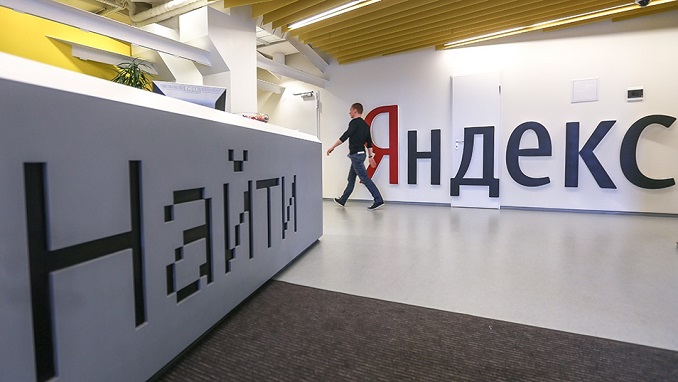While U.S.-based tech giant Google has about 90% of the global market share for internet search, it is lagging behind in Russia, where local tech conglomerate Yandex has captured 55% of the market, CNBC reports.
Yandex maintains its dominance due to its superior Russian language search capabilities, its wide array of services beyond search, and the company’s willingness to comply with Russian authorities’ stringent internet regulations.
Like Google, Yandex is much more than a search engine. It offers email, cloud, and online payment services, streaming music, news aggregation, and live traffic maps. Yandex.Taxi merged with Uber last year, and it is testing self-driving cars.
Although the two companies have been involved in an anti-trust lawsuit filed by Yandex over the share in the mobile market, they are practically operating a duopoly in the Russian internet search sphere, as Google is the second-most popular search engine in the country.
Basically, Yandex sure sounds a lot like Google. So why do the majority of Russia’s 144.5 million citizens actually prefer it?
Yandex was established in 1997, a year before Google, but the American company entered the Russian market in 2004.
“Yandex had a big head start on Google, which enabled it to get this dominant position during the infancy of the industry. Today, of course, it is not just a search engine, it is actually the biggest technology company in Russia, and also the biggest media company in Russia,” says Eurasia Group senior analyst Jason Bush.
Even after 15 years in the market, experts say Google is still lagging behind Yandex in interpreting Russian language search results, even if there are misspellings or grammatical errors, analysts say.
“Yandex is developed as a Russian search engine, and the morphology of the Russian language, not to mention the alphabet, on a very basic level, are quite different than that in English,” says Verisk Maplecroft’s Faragh McDowell.












